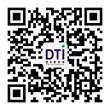LFGB test process for silicone products
Date:2025-06-27 09:48:47 Classification
:【question】 Visits:
German LFGB testing process for silicone products. German LFGB testing is a test for food contact materials to ensure that these materials do not cause harm to human health. For silicone products, LFGB testing is a necessary step to enter the German market. The following is a detailed process for German LFGB testing of silicone products:
1. Consultation and preparation
- Consultation: The applicant provides product pictures and information to the testing agency to understand the specific requirements and procedures of the test.
- Information preparation: Prepare detailed information about the product, including ingredients, production process, instructions for use, etc.
2. Quotation and application
- Quotation: The testing agency determines the test items based on the information provided by the applicant and quotes the applicant.
- Application confirmation: After the applicant confirms the quotation, fill in the test application form and pay the fee.
3. Sample submission
- Sample preparation: Prepare enough samples according to the test requirements.
- Sample submission: Send the samples to the testing agency, usually to the designated laboratory for testing.
4. Sample testing
- Comprehensive migration test: Test whether the product will migrate harmful substances when in contact with food.
- Special tests:
- Volatile organic compound test (VOM): Test the content of volatile organic compounds in the product.
- Peroxide value: Test the content of peroxide in the product.
- Organotin: Test the content of organotin compounds in the product.
- Other tests: Depending on the product type and usage scenario, other specific tests may be required.
5. Test results and reports
- Test results: After the testing agency completes the test, it will issue detailed test results.
- Report issuance: If the product meets the requirements of LFGB regulations, the testing agency will issue a LFGB test report.
6. Certification and labeling
- Certification: After obtaining the LFGB test report, the product can be sold in the German market.
- Labeling: Affixing a knife and fork logo to the product indicates that the product has passed the LFGB test and meets the requirements of German food contact material regulations.
7. Follow-up services
- Technical support: The testing agency usually provides follow-up technical support to help solve problems encountered during product production and sales.
- Regulatory updates: Pay attention to updates on LFGB regulations to ensure that products continue to comply with the latest regulatory requirements.




 Shen Gongwang Security: 44030602006947
Shen Gongwang Security: 44030602006947